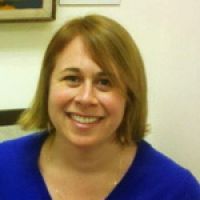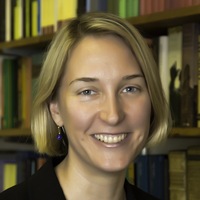In the best of all possible worlds, digital scholarly projects are simple and striking, robust and adept, and immortal.
In the real world, however, such idealistic notions elide the attention and effort required to create and sustain digital scholarship, and overlook the intellectual insight and growth that can emerge in the process. Digital scholarship is labor, producing effects and outcomes that its creators often did not imagine. At the 2017 Digital Scholarship Services Open House, Meredith Goldsmith captured this productive irony when she likened building and sustaining a digital project on mapping realistic literature (Mapping Literary Visions) to that infamous high school assignment on parenting:

I sort of feel like I’m a high school student in health class who’s been given a doll, and you have to feed it and take care of it, you know? It’s always going to be there, as opposed to an essay that you get out and then it’s gone. So I think it’s quite different, as an academic, to be managing something that’s out there on the Internet. — Meredith Goldsmith
Meredith’s analogy struck a chord and set the tone for an animated discussion of the work of digital scholarship — a conversation that turned often to the value of this work beyond the mere production of a digital object. Creating something that “lives” online requires a different quality of attention and commitment. As Meredith put it, “It’s a marathon, not a sprint.”

Committing to this effort, though, can lead to other, unanticipated rewards. Indeed, much like that parenting assignment, the very act of taking on responsibility for the digital incarnation of one’s scholarship makes more tangible the often invisible work of being a scholar. Jessica Stark, for example, in describing the process of creating a digital poetry archive, noted that this is itself an intellectual act. Her scholarly judgment is there, evident in the choices about what to include, what not. This realization, in turn, has made her more attentive to how she is constructing an argument through the process of curating materials and how to be more intentional and transparent about those choices. She’s also become more attuned to the time involved, and in her talk she echoed and underscored Meredith’s description of the digital humanities experience as a “cultivation of patience” — a life lesson in the scholarly effort such work requires.
Stark on archive creation “it’s been a balance act of how much time it’s going to take & create a narrative…that’s not biased…”#DSSopenhouse
— DukeDSS (@DukeDSS) February 17, 2017

Caroline Stark, whose Io Project is a digital effort to demonstrate the pedagogical potential of incorporating reception theory into Classics instruction, likened her own digital scholarship experience to world-making. In that context, the presence of the scholar is unavoidable, and attempts to erase that presence may be not merely impossible but also not desirable. For instance, how can she ensure that this digital teaching resource offers the information and interactivity she can provide in the classroom? At the same time, the digital manifestation imposes regularity and structure that in turn scope and restrain what can be included. Such challenges led to a surprising insight into “how much interpretive presence [scholars] put into shaping material”:
When you put it online, and you want them to discover it for themselves, erasing yourself from the material — it’s really been one of the surprising aspects. Because you want to anticipate where all the rabbit holes go, without saying, “See, look at this! Look at this text! And this picture — can you see it?!” It’s easy to do that in a classroom, but when you have it in the digital, you really are forcing an interpretation. — Caroline Stark
In an event meant to raise attention to the iterative, interleaved phases of project development, this conversation exposed the hidden labor of digital scholarship — and not merely the work of technologists, project managers, and others critical to the success of digital projects. In this case, through the work of creating digital projects, scholars saw their methodological approaches with fresh eyes and recognized the necessity of being intentional in how they present this in the resulting digital scholarship.
There’s much more to share about this event — from the cross-departmental collaboration to incorporate Scalar into Sandra Sotelo-Miller’s freshman writing course, to the survey of Project Vox users by Adam Griggs. Fortunately, you can view the entire event on Panopto here: http://library.capture.duke.edu/Panopto/Pages/Viewer.aspx?id=9464bc57-5d3f-451e-9068-1cfb980a7a0e (panel begins ~13:30). If you’re just interested in scanning the highlights, View the story “Duke Digital Scholarship Services – 2017 Open House” on Storify. And if you’re interested in starting your own crash course in digital parenting, contact the Digital Scholarship Services team.